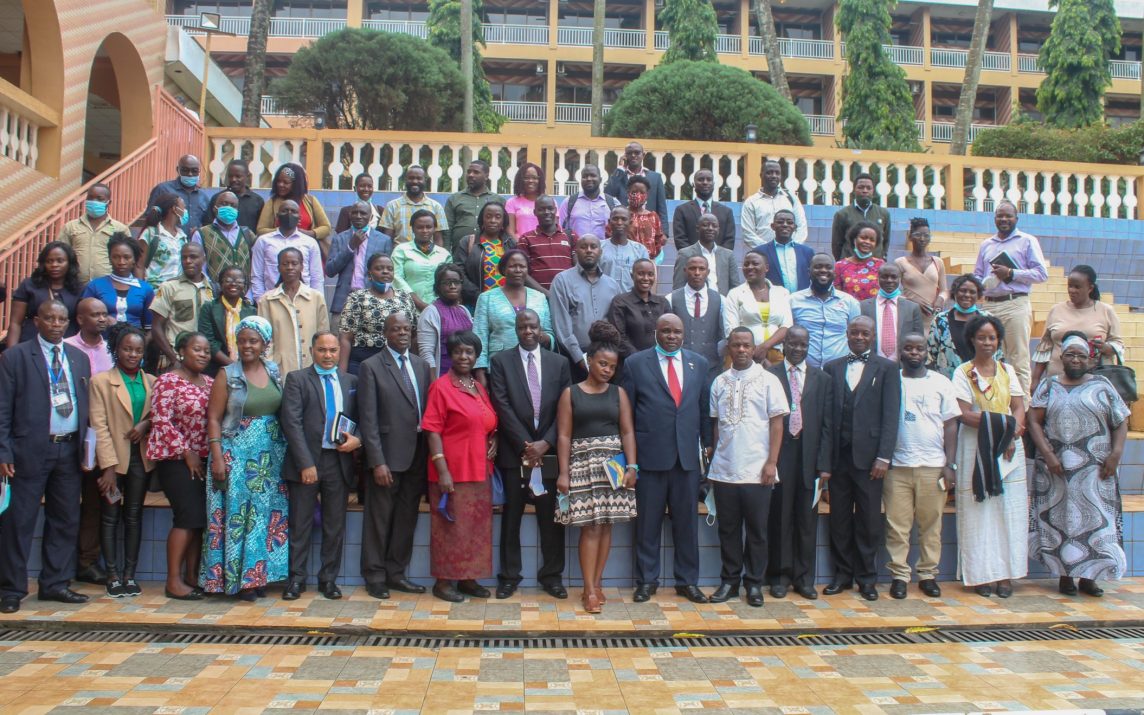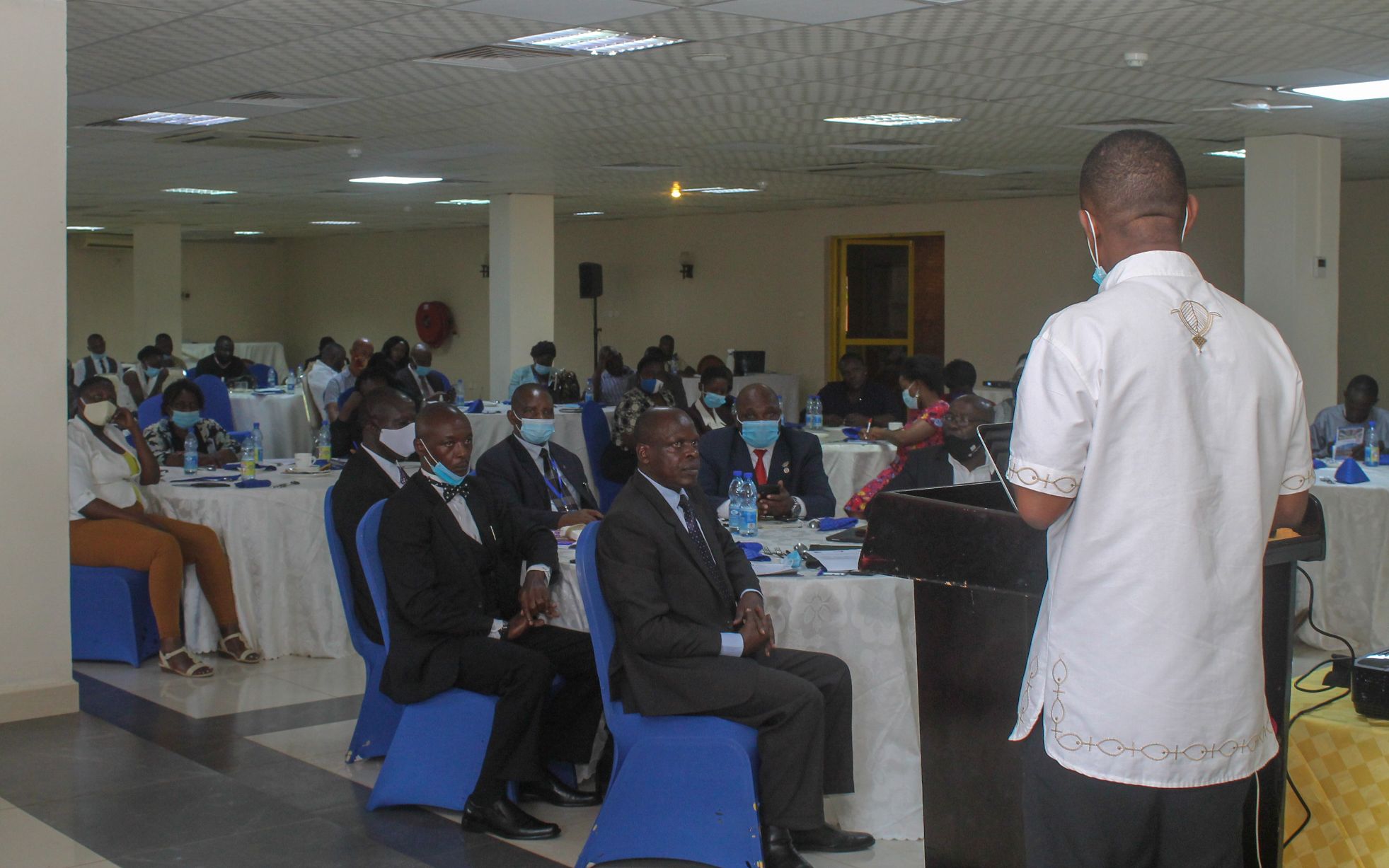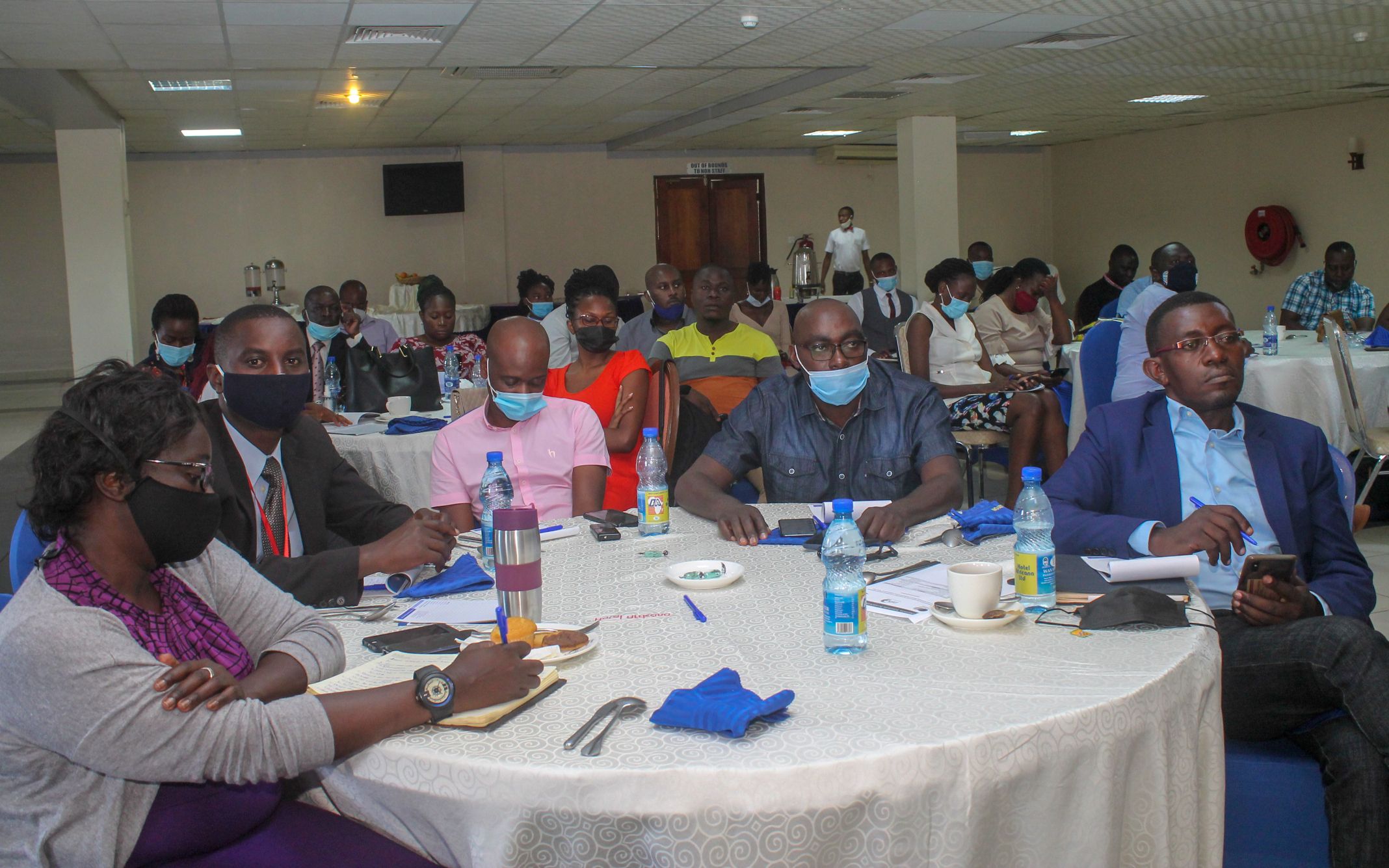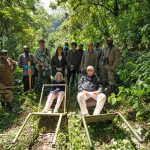At a stakeholders’ engagement in Kampala on Wednesday (26th May 2021), Uganda Tourism Association unveiled a new project titled CERRRP, aimed at kickstarting resilience from the worst effects of the COVID-19 pandemic.
The project which in full is the COVID-19 Economic Recovery and Resilience Response Program (CERRRP) has been funded by the Mastercard Foundation, supported by the Private Sector Foundation of Uganda (PSFU) for entities in the Tourism Sector.
Speaking at the meeting which included trade associations, hoteliers, tour operators, travel agents, community-tourism enterprises, tour guides, visual arts practitioners, among others; Mrs. Pearl Hoareau Kakooza, the president of Uganda’s tourism private sector apex body, UTA, made a passionate call to the stakeholders to engage with the project expeditiously as it was limited to only six months within which it had to be fully implemented.
Mr. Richard Kawere, the project’s coordinator who also is the Chief Executive Officer of the Uganda Tourism Association mentioned that the beneficiaries of the CERRRP project were to be picked, focusing on the sector’s value chain using the different trade associations that comprise UTA.
It is without a doubt that the Tourism and Hospitality Industry was the hardest-hit sector of the global economy by the COVID-19 outbreak. As countries around the world continue to struggle with the crash in international tourism during the novel coronavirus pandemic that has cost the global economy more than $4 trillion in 2020 and 2021, Uganda has been working to not only vaccinate its population and implement requisite Standard Operating Procedures (SOPs) but to also cushion the economy towards some form of recovery.
The COVID-19 impact economic study carried out on the sector in Uganda by the Ministry of Tourism Wildlife and Antiquities indicated that 1 million tourist arrivals were lost, 7 in every 10 jobs in the sector were lost, 8 in every 10 hotel businesses registered business cancellations, 448,996 hotel rooms were canceled between March to July 2020, and 9 in every 10 tour companies registered cancellations. A total average Job loss of 74.4% in the sector.
“This project intends to support the tourism and hospitality MSMEs to mitigate effects of COVID -19 through structured business recovery and resilience support, especially through a common user facility, to return to work and support the economy through re-employment of those that lost jobs and creation of new opportunities, especially for youth and women,” Richard stated.
As revealed in its name, the project’s interventions are expected to improve marketing and promotion using modern technologies to drive demand and stimulate travel especially for the domestic travelers who will then lead to the restoration of Jobs and the creation of new opportunities for work, while triggering international travel confidence.
Among many outcomes, the project also intends to specifically focus on the development of new tourism products, strengthen cooperation and coordination of the actors along the tourism value chain; improve institutional capacity through sector performance guided by policies like strategic plans and manuals; and developing new standards as well as training professionals in the tourism sector.
The UTA president, in her remarks also reminded the sector players that tourism in Uganda is private sector driven and therefore called upon all the different trade groups to prove and exercise the different mandates in ensuring that everything moved quickly to deliver the project to its full completion.
END
For more details on how to apply for support under the CERRRP project as a tourism sector player, you are encouraged to contact your trade association or the Uganda Tourism Association secretariat directly at ceouta2016@gmail.com or +256 785 489 481






